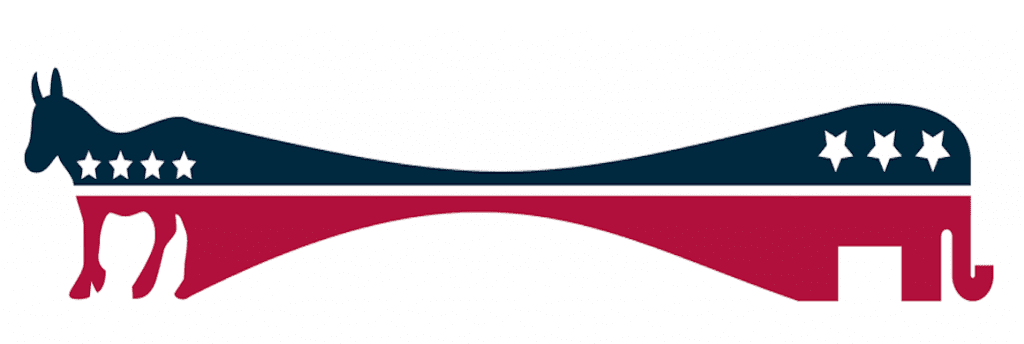HBS Paper Looks At US Political Problems Through Lens of Competition

In the free market sense, competition is one of the world’s greatest drivers of innovation. But more often than not, the effect of political competition may not be readily positive, according to new research from Harvard Business School.
Co-authored by former CEO Katherine Gehl along with HBS professor and U.S. Competitiveness Project Co-Chair Michael E. Porter, the duo identified how the “fundamental structural issues ailing the U.S. political system” have evolved using Porter’s Five Forces analysis.
The report breaks down how the American political “duopoly is protected by huge barriers to entry that have not only blocked major new parties but also independents and moderates” and “will not be self-correcting.” What has transpired from time immemorial, according to Gehl, is that the two dominant competitors in the American politics industry “focus on serving their partisan supporters and special interests, not the average voter.”
One revealing portion of the study digs deeper into the profound effects ideology has on the issue.
“Parties compete to create and reinforce partisan divisions, not deliver the practical solutions that are the most important outcome we need our political system to achieve” … “The duopoly appeals to its partisan supporters based on ideology, not policies that work. Ideology offers simplistic and polarized approaches to addressing issues. The definition of ideology includes words such as ‘beliefs,’ ‘perspectives,’ and ‘doctrine,’ not words like ‘reality,’ ‘objective analysis,’ and ‘facts.’ Ideological stances appeal to partisan believers but rarely, if ever, provide an actual solution.”
Porter, whose organization “identifies the necessary steps policymakers and the business community must take to improve U.S. competitiveness,” explained the roots of his desire to extend his research into the political domain.
“I was drawn to analyze the U.S. political system as an industry when our research found that our political system is the biggest impediment to U.S. competitiveness,” Porter said. “Our dysfunctional political outcomes are a competition problem.”
Gehl and Porter used their research as an opportunity to evaluate “which powerful and achievable political reforms should be pursued” and then lay out an actionable plan for how to reinvigorate “our democracy by shifting the very nature of competition.”
Click here to read full report.
